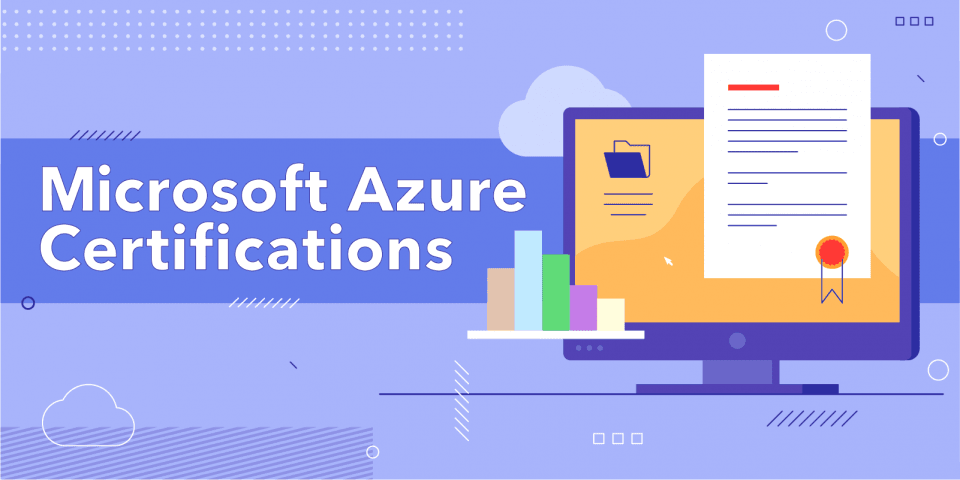A lot of buzz surrounds cloud computing and cloud certification courses. Among these, the Azure training courses are catching attention. The courses can help in various aspects of a cloud computing enthusiast. With the recently announced certification renewals and expiration changes, Microsoft has some benefits to offer its learners.
Why do You Need an Azure Certification?
A Microsoft Azure course is like a boost for individuals interested in working in the cloud computing field. Cloud computing is growing exponentially, and one way to stay ahead in this sector is by utilizing the training certification courses offered by big names.
Here is where an Azure certification comes to play. Microsoft offers extensive Azure training that allows one to enhance their cloud computing skills. Through this, one can learn several facets of cloud computing. The certification can also be better for one’s chances of bagging an excellent job or improve employability.
What are the different types of Azure Training Certifications available?
There are nine types of roles offered by the Microsoft certification courses. These courses are also role-based, meaning they depend on a particular role that one wants to play.
The basic certification courses are divided into two segments:
- Azure Apps (Applications) and Infra (Infrastructure)
- Azure Data and AI (Artificial Intelligence)
The following tables illustrate the course offered under each segment-
Azure Training Certifications Offered Under Azure Apps And Infra
| Azure Fundamentals | Azure Role-based | |
| Associate level | Expert level | |
| Azure Fundamentals certified by Microsoft | Azure Database Administrator Associate by Microsoft | Azure DevOps Engineer Expert by Microsoft |
| Azure Developer Associate by Microsoft | Azure Solutions Architect Expert by Microsoft | |
| Azure Security Engineer Associate by Microsoft |
This fraction of courses offered is designed mainly for developers and IT professionals. The Azure Fundamentals is, however, an optional course. It is recommended if one wants to brush up on their skills or to revise and enhance the fundamental skills.
When one completes an associate Microsoft course, one can move on to expert-level certifications.
Azure Training Certifications Offered Under Azure Data And AI
| Azure Fundamentals | Azure Role-based | |
| Associate level | Expert level | |
| Azure Data Fundamentals by Microsoft | Azure Data Scientist Associate by Microsoft | Azure Solutions Architect Expert by Microsoft |
| Azure AI Fundamentals by Microsoft | Azure Data Engineer Associate by Microsoft | |
| Azure AI Engineer Associate by Microsoft | ||
| Azure Stack Hub Operator Associate by Microsoft |
Once again, the Azure Fundamentals certification course listed here is optional. The Solutions Architect Expert is the same course as offered under Azure Apps and Infra.
Azure Speciality Certification Courses
| Microsoft – Azure IoT Developer Speciality |
| Microsoft- Azure for SAP Workloads Speciality |
| Microsoft – Azure Virtual Desktop Speciality |
In addition to the above, Microsoft training courses also include the following certifications:
- Security Operations Analyst Associate
- Identity and Access Administrator Associate
Similar to the other courses, these two also have exams that need to be taken before enrollment.
Which Azure certification is good for you?
Some may face a dilemma on which Azure training course to select. In total, there are sixteen comprehensive courses offered under the various levels. The levels, as seen in the above section, are:
- Fundamental
- Associate
- Expert
Further, there are also speciality courses offered.
The selection of the course will depend heavily on the level of one’s knowledge or professional experience. If the individual is a beginner or is completely new to the field, they can begin with an entry-level certification. An entry-level certification course will familiarize one with the field.
Suppose the individual has some existing knowledge about cloud computing. Then too, they are recommended to finish the fundamental courses first. These entry-level certifications will act as a foundation for a better-skilled future. They can simultaneously revise the fundamentals as well as gain some hands-on experience.
The role-based certifications help those who are already working with the cloud and are looking for better roles.
It is a given that the course may not align with a particular job role that the candidate wishes to choose. Therefore, it is constantly advised to check the job roles and responsibilities as stated by the recruiter. This will help in finding the most suitable course.
It can be overwhelming for those who plan to get started with Azure training. But with the help of the tools and lessons offered by Microsoft, one can take the next step with confidence.
